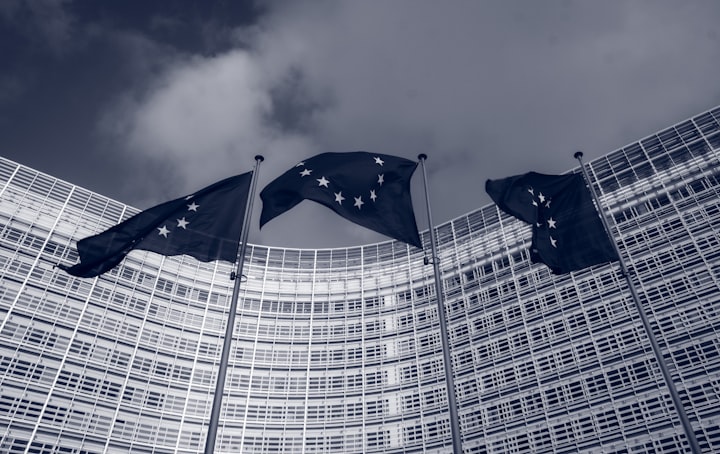Why did the UK decide to leave the EU?
Why did the UK decide to leave the EU?

On Thursday, June 23, 2016, British voters voted 52 to 48 percent to leave the European Union. Nine months later, Prime Minister Theresa May began Article 50 on March 29, 2017, and initiated the first year of two negotiations to negotiate a UK withdrawal from the EU.
In a referendum on 23 June 2016, the majority of voters chose to leave the European Union. On March 29, 2017, the Prime Minister drafted Article 50 in a letter to European Union President Donald Tusk and opened the UK's two-year census to officially leave the EU, also known as Brexit. People support membership because they feel it fills their needs: a thriving economy, protection from crime and terrorism, immigration control, and efficient public services.
The government then introduced a bill to ratify the Withdrawal Agreement. The law was passed in the second reading of the toilet on 20 December 2019 by 358 to 234 votes [180] and came into effect on 23 January 2020 as a European withdrawal agreement from 2020. On the same day, the withdrawal agreement was backed by the Constitutional Committee of the European Parliament, which raised hopes that the European Parliament would approve it by voting later. The result violated stasis in the UK Parliament and ended the existence of a referendum on the treaty, confirming that the UK was leaving the EU on January 31, 2020.
00 CET, United Kingdom membership of the European Union expires 47 years after it entered. Withdrawal from the EU is governed by Article 50 of the European Union Treaty. Article 50 was drafted by Lord Kerr of Kinlochard [90] and included in the Treaty of Lisbon at the instigation of the British Government.
With this amendment, the British Government and negotiations from the two parties reviewed their text on treaties in the Republic of Ireland and Northern Ireland. On October 17, 2019, the Council of Europe ratified the new treaty following Article 50. The vote, by 286 votes to 344, was almost lower than the previous two and plans to create a permanent and unified cultural union with the EU failed.
At a summit of EU leaders in Brussels in February 2016, the European Council announced, at Cameron's request, an agreement to change British membership to prevent Britain's exit from the EU. Although he did not receive all the inquiries from a proposal he made to European Council President Donald Tusk in November 2015, he has obtained sufficient approval to back down from his promise of a referendum on the continuation of British membership. Cameron announced his intention to step down as prime minister ahead of the Conservative Party's October 2016 conference to allow his successor to negotiate a British withdrawal under Article 50 of the Lisbon Treaty, which was held to open a two-year window on the withdrawal process.
Former the United Kingdom on March 27, 2019, at the European Parliament in Strasbourg, eastern France, UKIP leader Brexit Supporter and MEP Nigel Farage (L) addressed EU President Jean-Claude Juncker on March 27, 2019, at the European Parliament. Six months after the poll, you can go back and analyze the results in detail and see what really matters - why voters have made the historic decision to leave the EU. 52% of voters in the polls chose to leave the EU, while 48% voted to stay.
Research and research supported by the UK Change Europe program allow us to explore other factors that may influence the survey. Research shows that people's perceptions of the state of the world economy became increasingly important in explaining their response to the EU after the 2008 financial crisis and the subsequent crisis in the eurozone. Statistics relating to the costs and benefits of integration vary depending on who is considered successful and the failure of European integration.
Analysis of our research data shows that assessing the economic benefits and costs of EU membership has played a major role in voter decisions. Respondents emphasized the national, human, and economic costs of leaving the EU more often than those who voted to stay. Recent opinion polls, such as Scotland's independence referendum and elections, suggest that British society generally favors the EU.
Opinion polls suggest 39 percent of voters leave the EU in a referendum. Research shows that older people were more likely to vote for Livu and younger people were less likely to vote for Halla.
The options offered to voters were wide and vague - to leave or stay - and Prime Minister David Cameron was confident that if left - he would succeed.
Two of Brexit's most common arguments are based on EU liberation laws on internal migration and its heavy economic policies. These controversies revived the long-running Euroscepticism of Britain. The term Brexit seems to refer to "Grexit" in history, the Greek term leaves the UE, but many sources seem to believe it came to Peter Wilding from his post "Disability with Brexit" on May 15, 2012.
Here are some important dates in the history of EU-UK relations (for more details, see the full external timeline). This was a common question when it came to last June's referendum and process issues after the poll. It was a question the market disciplined itself as it would press.
About the Creator
Rosan Pandey
Hi there!





Comments
There are no comments for this story
Be the first to respond and start the conversation.